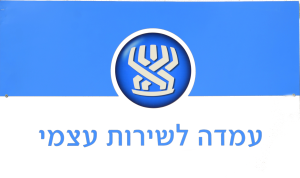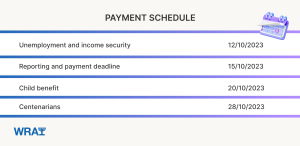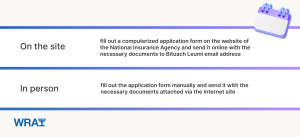Bituach Leumi: Israel's National Insurance Institute
Every year thousands of residents come to Israel who dream of obtaining citizenship. It’s not just a developed education system, advanced medicine or a good climate. The country has a unique system of benefits designed to protect vulnerable segments of the population. So, what is Bituach Leumi?
What is Bituach Leumi?
The Bituah Leumi National Insurance Institute is a state organization that is responsible for ensuring the social rights of Israeli citizens. It is important for the new repatriate to establish cooperation with the department from the first days of his stay in the country.
The following categories of new returnees can count on assistance from Israel Bituah Leumi:
- Bituach Leumi disability. People with disabilities receive not only cash payments, they are also provided with rehabilitation and vocational training services;
- Bituach Leumi old age pension. Women over the age of 65 and men over the age of 70. They are entitled to an old age allowance;
- Persons who have received an occupational injury;
- Bituach Leumi maternity leave. Receive a lump sum payment on the birth of a child;
- Children under 18 years old. The amount of child benefit does not depend on the total family income;
- Persons whose incomes do not reach the minimum subsistence level determined by law;
- Other categories of citizens in need of assistance.
an Israeli citizenship specialist
At the initial stage of life in Israel, they are exempt from paying mandatory contributions to the National Insurance Institute. As soon as the grace period ends, tax obligations to Bituah Leumi begin to form. Their size depends on the insurance status of the payer. For individuals with different incomes, the amounts of payments will be different. Persons who do not live in Israel and do not have income here can pay the minimum established by the state, which is 177 shekels per month. But you can confirm that you are not a resident of the country and you will be relieved of the obligation to pay for insurance.
In order not to have obligations to Bituah Leumi during a long absence in Israel, it is necessary to regulate your resident status. The fact is that your presence in the country is not tracked by the National Insurance Agency. You may be absent for a year, two or even longer, and contributions to medical and national insurance will continue to accrue. Therefore, you need to pay the established minimum or give up the Bituah Leumi.
Bituach Leumi Services and Benefits
This system was created to provide weak, sick or unprotected citizens with the opportunity to lead a normal lifestyle. A big plus is that the program assumes minimal verification so that everyone can count on help in a difficult life situation.
The National Insurance Institute of Israel is focused on helping in difficult life situations:
- the elderly and people over 65;
- disabled people;
- single mothers raising children;
- unemployed (it is necessary not only to lose the employer, but also to register with the employment service).
Within the framework of Bituach Leumi Jerusalem social and other projects are being implemented:
- advanced training courses;
- rehabilitation programs;
- with the help of social workers, nursing, etc.

For example, for someone who does not work and has no income, the minimum amounts of insurance premiums are set (as of January 1, 2023, may change in the future):
The total amount that a non–employee must transfer monthly to social security is 194 shekels, which is approximately $ 55 (from January 1, 2023).
How to Contact Bituach Leumi
You can make an appointment by phone or on the website. The Bituah Leumi Telephone Center provides service in Hebrew, Russian, Arabic and Amharic.
Bituach Leumi phone number: ☎️*6050 or ☎️04-8812345
Additional information about the telephone center is available on the website of Bituah Leumi. Information about the addresses of the branches and the hours of reception of visitors is available on the website.
Bituach Leumi Opening Hours
Bituach Leumi Netanya opening hours: Mondays, Tuesdays and Thursdays from 8.00 to 12.30. The reception is strictly by appointment, so it is better to call the Bituach Leumi contact center beforehand and find out all the detailed information.
Bituach Leumi Payment Schedule
The allowance is paid on the 28th of each month (for the current month). The payment date may change in some months due to holidays – information about the changes can be found in the Bituach Leumi payment schedule. The table is on the website, they update the information there every month. For example, this is what the Bituach Leumi payments look like for November 2023:
The benefit is transferred exclusively to the insured’s bank account or to the insured’s joint account with the spouse, parent, brother/sister, son/daughter. You can change the bank account to which the benefit is transferred on the website or by filling out a form on changing personal data.
In the following cases, the benefit may be transferred to another bank account:
- if the insured is a member of a kibbutz or cooperative settlement, he may ask to transfer the benefit to the bank account of the kibbutz or cooperative settlement;
- if the insured is in a special institution and most of the costs of his maintenance are borne by a public organization, the benefit will be divided if a request is received from a public organization.
In the first month of receiving the old-age allowance, the payment of the allowance will be made in accordance with the date of birth of the recipient:
- Those born before the 15th of the month begin to receive benefits in the month when they have reached the age that entitles them to benefits.
- Those born after the 15th day of the month begin to receive benefits in the month following the month in which they reached the age that entitles them to benefits.
- Insured persons who are entitled to a subsistence allowance start receiving benefits in the month when they have reached the age that entitles them to benefits, even if they were born after the 15th.
Forms and Documents
The provision of benefits or benefits begins with the submission of an application. Bituach Leumi forms should be accompanied by documents that prove belonging to a vulnerable segment of the population.
The application and the documents attached to it can be sent as follows:
The easiest way is to contact one of the care providers: they will arrange and send the necessary documents themselves. However, participation in the application of such a company is not a guarantee that you will receive a care allowance.
After submitting the application, if you meet the basic criteria for receiving benefits, your application will be reviewed in accordance with the data specified in the medical certificates. After that, the expert of the care department of the National Insurance Agency, who is engaged in assessing the level of functioning, will coordinate with you the time of a home visit in order to check your functioning capabilities in your place of residence. In some cases, the right to care benefits is established only on the basis of medical documents without the need for additional verification.
At the end of 2018, a report appeared in the media that at a meeting of the Commission for the development of a state program for the elderly, the issue of the verification process by a representative of Bituach Leumi Netanya was discussed, at which it was a question of receiving benefits based only on a doctor’s certificate, if it was properly issued. This possibility has not yet been fixed by law, but it should be borne in mind that it is possible. You can read more about what should be in the certificate of the attending physician, in order to receive care from Bituah Leumi only on the basis of this certificate, here.
After submitting the documents, the verification process begins. In some cases, the expert comes and checks again.
At the beginning of his visit, an expert representing the National Insurance Agency explains to you and the person who is present at the inspection how the inspection is going. He will answer your questions and write down the main points of what you and your family members have said.
To get to know you better, the expert will ask a few questions to you and the person who is present at the check. An expert will examine you and your accommodation. He may ask you to show the aids you use; your medications and the medical documents you have. Any information you provide is important for evaluating your functioning.
If necessary, if the expert is unable to make an assessment based on what he saw and heard about how you perform everyday actions, he will ask you to demonstrate some of them: putting one piece of clothing on another, washing your hands and heating a portion of food and serving it on the table. The demonstration is made only with your consent, taking into account your feelings. If you need help, an expert will help you. You will not be asked to perform any actions that could put you in danger.
The expert will summarize the results of the visit with you and with others present and leave you a sheet with explanations and recommendations. Continuing consideration of the application, the Expert will transmit to the National Insurance Agency the results of his visit.
The Agency will make a decision within two weeks after the visit, which will be sent to the address you filled out in the application form.
Bituach Leumi in English
Bituach Leumi English is available. The English-speaking population can get all the information about the specifics of the institute’s work or submit an application in English. The fact is that the program has been developed not only for the native local population, but also for citizens who have recently received citizenship. The Bituach Leumi telephone service provides service in Hebrew, Russian, Arabic and Amharic.
an Israeli citizenship specialist





